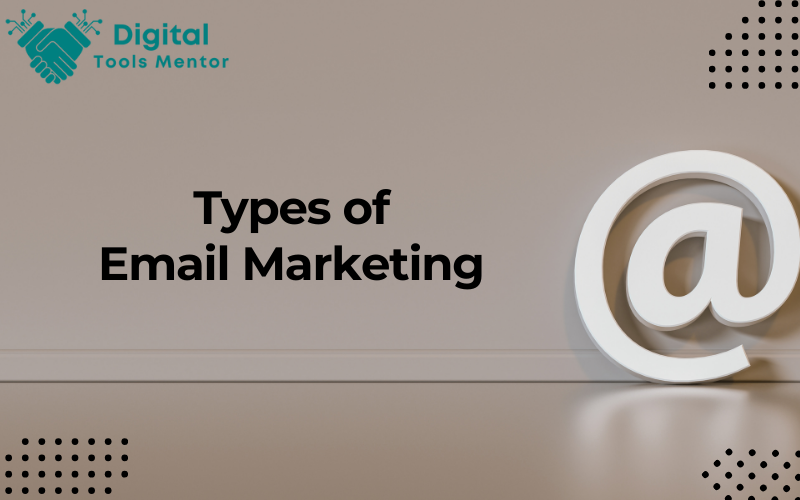7 Types of Email Marketing in 2025
Email marketing has emerged as one of the most powerful and cost-effective marketing channels for businesses across industries. With its ability to reach a wide audience and deliver personalized messages, email marketing offers a range of opportunities to engage with subscribers and drive conversions. However, it’s essential to understand that email marketing is not a one-size-fits-all approach. In fact, there are various types of email marketing campaigns, each serving a specific purpose and catering to different stages of the customer journey. Whether you’re aiming to nurture leads, promote products, build customer loyalty, or re-engage inactive subscribers, this article will explore the different types of email marketing available. By gaining insight into these diverse approaches, you’ll be equipped to tailor your email campaigns effectively and achieve your marketing objectives with precision.
7 Types of Email Marketing in 2025
There are several different types of email marketing campaigns that businesses can utilize to achieve specific goals and engage with their audience effectively. Here are some common types of email marketing:
1.Welcome Emails:
These emails are sent to new subscribers or customers to introduce your brand, set expectations, and provide a warm welcome. They often include a thank-you message, a brief introduction to your business, and useful information or resources.
2.Newsletter Emails:
Newsletter emails are a regular communication sent to subscribers to provide valuable content, industry updates, product announcements, or curated information. They help build brand loyalty, establish thought leadership, and keep subscribers informed and engaged.
3.Promotional Emails:
These emails focus on promoting specific products, services, or offers. They typically include enticing visuals, persuasive copy, and a clear call-to-action (CTA) to encourage recipients to make a purchase, take advantage of a discount, or participate in a limited-time offer.
4.Abandoned Cart Emails:
Abandoned cart emails are triggered when a user adds items to their shopping cart but fails to complete the purchase. These emails serve as reminders and often include personalized product recommendations or incentives to encourage customers to revisit their cart and complete the transaction.
5.Re-engagement Emails:
Re-engagement emails are sent to inactive subscribers or customers who haven’t interacted with your emails for a while. They aim to rekindle their interest and encourage them to re-engage with your brand through targeted offers, exclusive content, or incentives.
6.Transactional Emails:
These emails are triggered by specific actions or events, such as order confirmations, shipping notifications, password resets, or subscription renewals. Transactional emails provide essential information to customers and can also be an opportunity to upsell or cross-sell related products or services.
7.Follow-up Emails:
Follow-up emails are sent after a specific action or interaction, such as after attending an event, downloading a resource, or making a purchase. They can be used to express gratitude, request feedback, provide additional information, or offer exclusive follow-up deals.
Explore 157 Best Email Marketing Subject Lines
7 Types of Email Marketing in 2025: Conclusion
By leveraging these different types of email marketing campaigns, businesses can effectively communicate with their audience, nurture leads, drive conversions, and build long-lasting relationships with their subscribers and customers. In conclusion, understanding the various types of email marketing campaigns allows businesses to tailor their communication strategies and achieve specific marketing objectives. Whether it’s through welcome emails, newsletters, promotional emails, abandoned cart reminders, re-engagement efforts, transactional emails, or follow-ups, each type serves a unique purpose in engaging with subscribers and customers. By utilizing the appropriate types of email marketing campaigns, businesses can foster stronger connections, drive conversions, and enhance customer loyalty. With a well-rounded approach to email marketing, companies can maximize their outreach and deliver impactful messages to their target audience.




